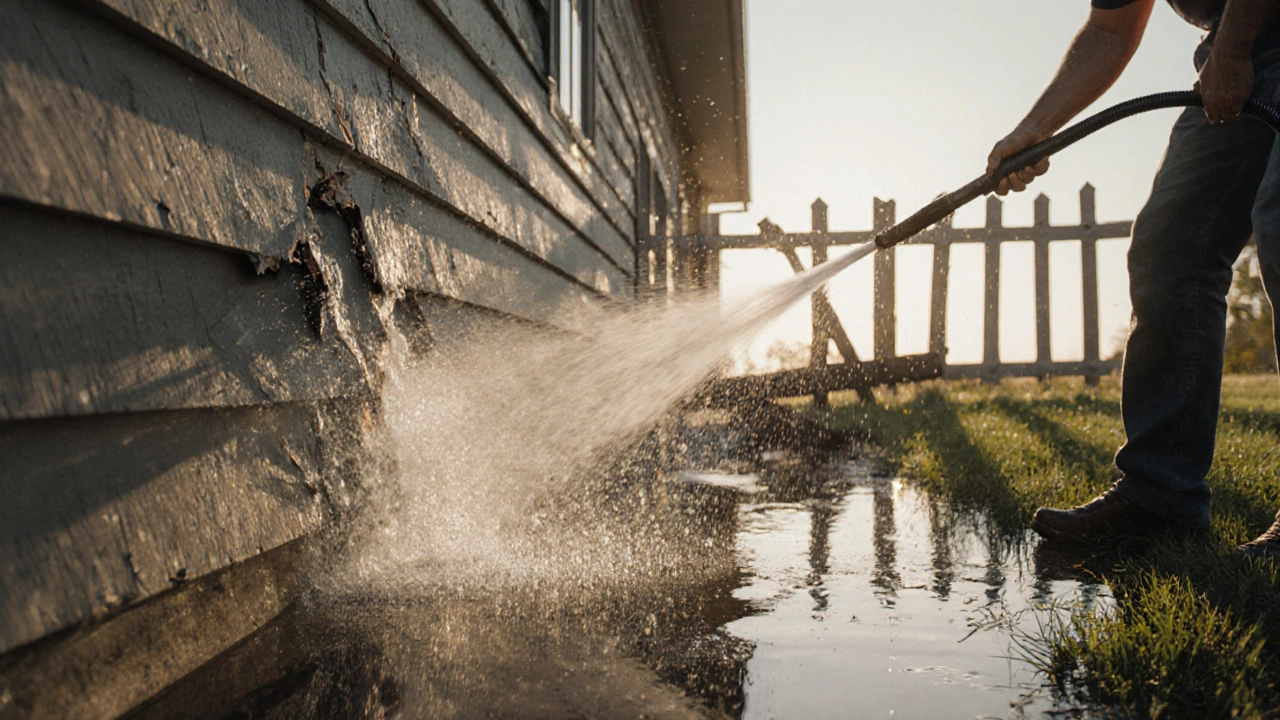Pressure Washer Disadvantages: What You Need to Know Before You Rent or Buy
When you think of a pressure washer, a high-powered cleaning tool that uses forced water to remove dirt, grime, and mold from surfaces. Also known as a power washer, it’s a go-to for driveways, siding, and patios. But despite its speed and power, it’s not the miracle tool it’s made out to be. Many people rent or buy one thinking it’ll save time and money—only to end up with cracked concrete, stripped paint, or worse, a personal injury.
The biggest pressure washer disadvantages, the hidden risks and unintended consequences of using high-pressure water on surfaces aren’t always obvious. For example, using too much pressure on wood, brick, or vinyl siding can cause irreversible damage. A 3,000 PSI machine might blast away algae from your driveway, but it can also turn soft wood into splinters or blow away the protective sealant on your deck. Even water pressure alone—without any cleaning chemicals—can erode mortar between bricks over time. And if you’re not careful, you can send water behind siding or under windows, leading to hidden mold and rot that shows up months later.
Then there’s the safety risk, the danger posed by high-pressure water streams that can cut skin or cause serious injury. A pressure washer nozzle doesn’t just spray water—it shoots it like a needle. At close range, even a standard 2,000 PSI unit can pierce skin. People have lost fingers or suffered nerve damage because they didn’t realize how dangerous the stream could be. And if you’re cleaning near electrical outlets, wiring, or gas lines, you’re playing with fire. Water doesn’t just clean—it conducts electricity. One slip, one wrong angle, and you’re in trouble.
Another issue? water use, the large volume of water consumed by pressure washers during operation. A typical machine uses 2 to 4 gallons per minute. That’s 120 to 240 gallons in just one hour. In areas with water restrictions or drought conditions, that’s not just wasteful—it can violate local rules. And if you’re using a pressure washer on a driveway or patio, runoff can carry oil, chemicals, and dirt into storm drains, polluting local waterways. Some cities now require permits or eco-friendly cleaning methods just to use one.
And let’s not forget the noise. Pressure washers aren’t quiet. They’re loud enough to disturb neighbors, wake up kids, or make it hard to hear yourself think. If you’re doing it on a weekend morning, you might get complaints—or worse, a fine. Plus, the equipment isn’t cheap to buy, maintain, or store. You need hoses, nozzles, detergent tanks, and a place to keep it all dry. For most homeowners, renting one for a single job makes more sense than owning it.
So what’s the alternative? Sometimes, a garden hose with a good scrub brush and eco-friendly cleaner does the job just as well—without the risk. Or you can hire a pro who knows exactly how much pressure to use, what surfaces can handle it, and how to protect your property. The posts below break down real cases where pressure washing went wrong, what tools actually work for different surfaces, and how to avoid the most common mistakes. Whether you’re thinking of buying one or just trying to clean your driveway, these guides will help you make smarter choices.

What Are the Disadvantages of a Pressure Washer? Real Risks You Can't Ignore
Pressure washers are powerful but come with serious risks-surface damage, water intrusion, safety hazards, and environmental harm. Learn the real downsides and how to avoid costly mistakes.
Read More